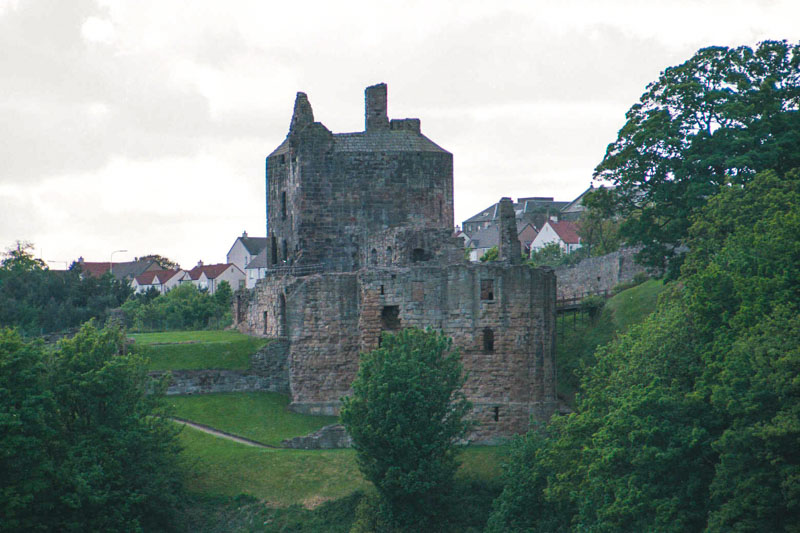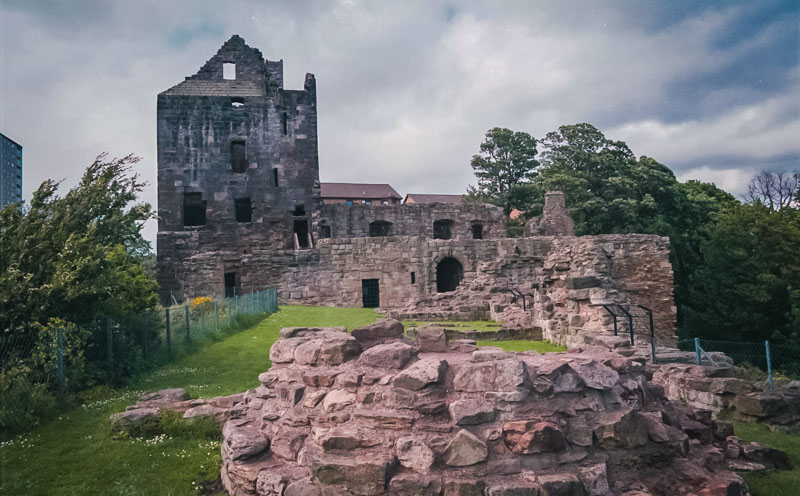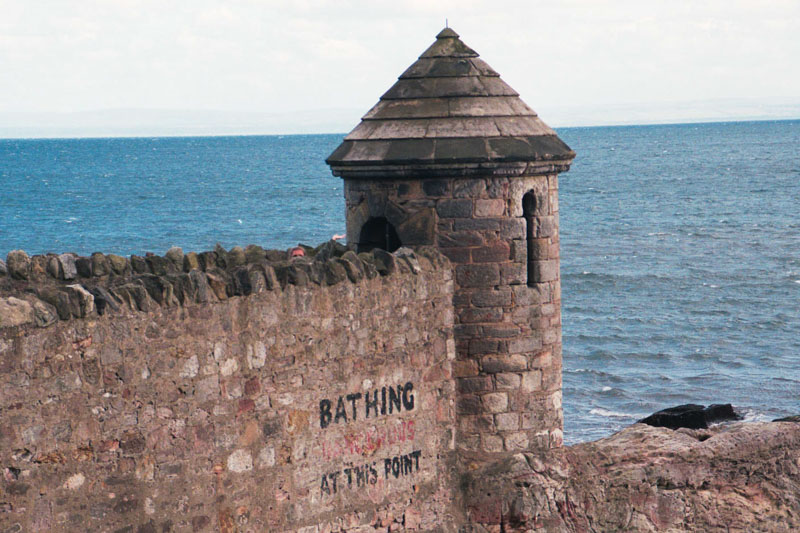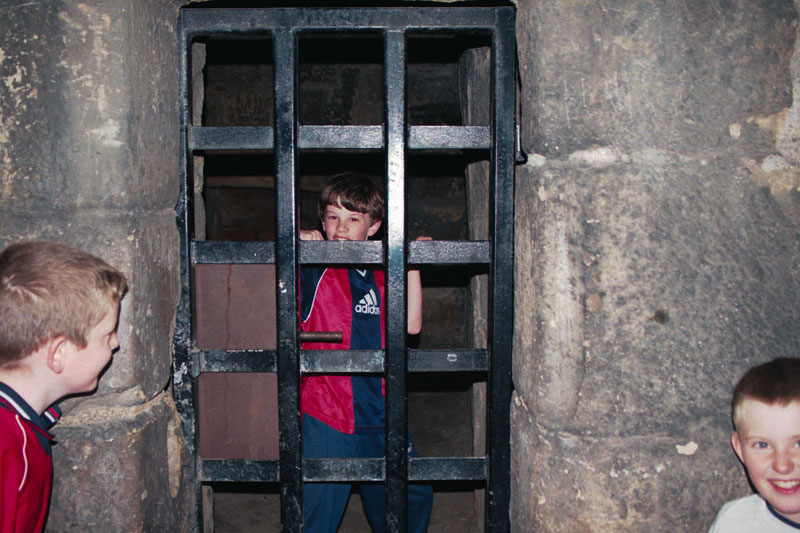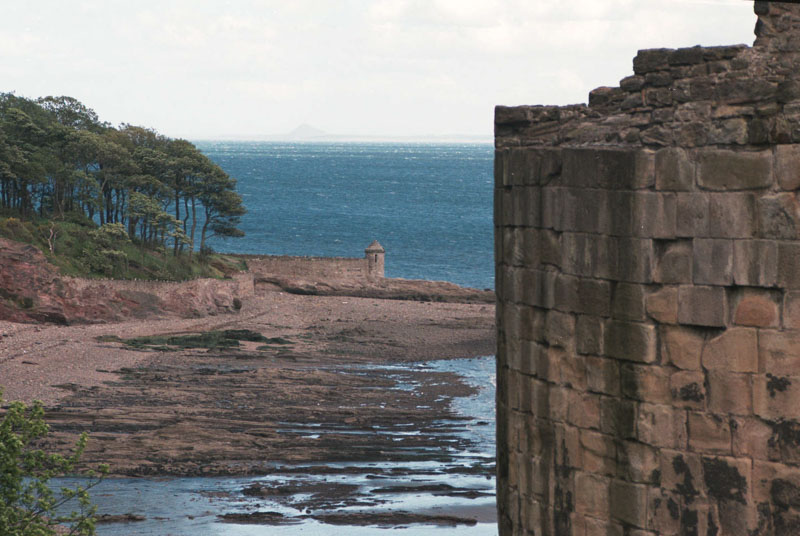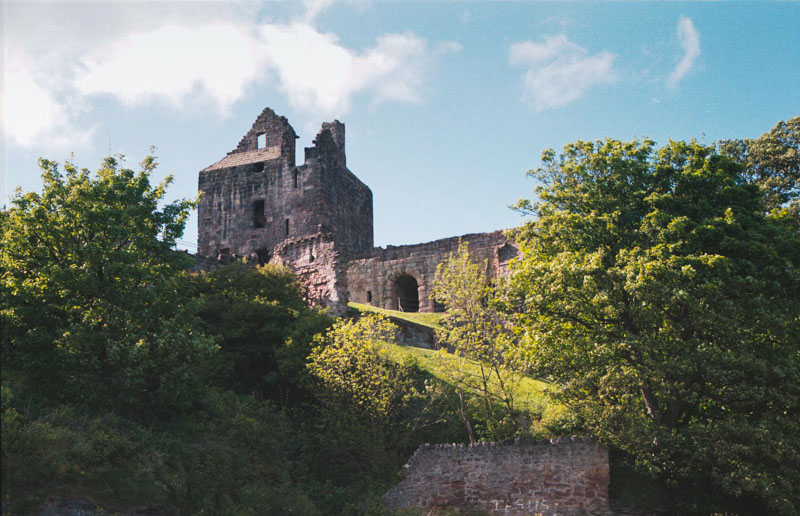
Sitting in the middle of hundreds of acres of parkland and coast, Ravenscraig is an altered 15th century castle and courtyard, and was one of the first castles in Scotland built to withstand and return artillery fire.
Begun in 1460 as a jointure house for Mary of Gueldres by her husband James II, who died when a cannon exploded in Roxburgh. Mary died at the castle in 1463. The current castle most likely dates from this period. Ravenscraig remained unfinished until 1470, when James III forced William Sinclair, Earl of Orkney, to take Ravenscraig in return for Kirkwall Castle. Apparently you don’t refuse an offer to trade from a king?
It was held by the Sinclair Earls of Roslin, who completed the castle and inhabited it until 1650.
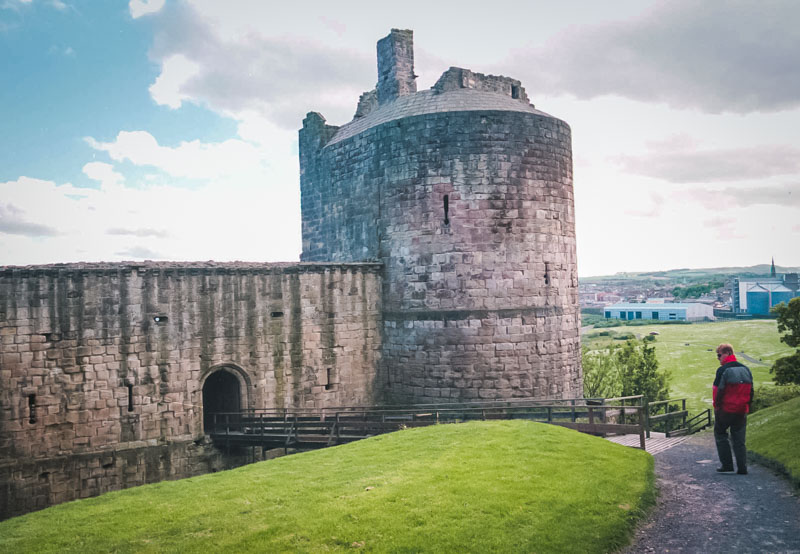
The western part of this very large castle was first built, being darker ashlar than the rest of the castle. It was also more self-contained than the rest of the castle, and may represent the original fortress. Further south are the remains of a small later range and walls designed to block off the already difficult access to the point.
It had two D-plan towers, with very thick walls, and a courtyard cut off from the mainland by a deep ditch. The towers were linked by a 2 story block with a broad parapet wall. The upper rooms of both towers have latrines and window seats.
The west tower is still 4 stories tall plus a garret, although it no longer has a roof. The towers had keyhole gunports, some designed to accomodate falonets (small cannons). The central range has a second story artillery platform. The east tower, 3 storeys with a round front is below the ground level of the main range. Each tower had an independent well. The single rooms on each floor of the towers (now blocked off) are small because the walls are so thick.
